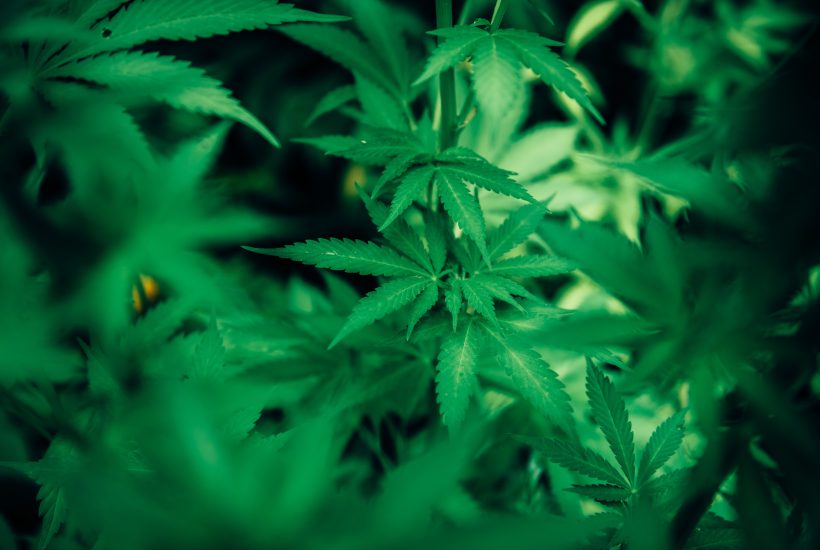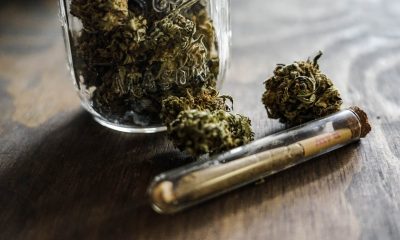Cannabis
Colombian Cannabis Exports Soared 96% Last Year
During 2022, Colombia exported a huge quantity of cannabis, worth $8.4 million. More than 90% of Colombian cannabis exports originated in the departments of Bogotá, Cundinamarca, and Antioquia. The most sought-after goods abroad were extracts, medicines, and seeds, according to DANE figures analyzed by ProColombia.

Bogota (48%), Cundinamarca (30%), Antioquia (12%), Santander (8%), and Magdalena (2%), were the Colombian departments that exported $8.4 million in cannabis between January and November 2022, which represented an increase of 96% compared to the same period in 2021, according to Dane figures.
There are 13 companies that reached 14 countries, where Argentina (40%), Brazil (14%), Australia (12%), Switzerland (7%), Israel (6.5%), the United States (6%) and Germany (5.5%) stand out.
“Latin America and the Caribbean accounted for 58% of these exports. It is a sector that has an important potential in the generation of quality employment, especially for women, in different regions of the country. Similarly, cannabis value-added goods have stood out for their quality and innovation,” said Carmen Caballero, president of ProColombia.
Read more about the Colombian cannabis market and find the latest cannabis news in the world with the Hemp.im mobile app.
The most sought-after goods abroad were extracts, medicines, and seeds, according to DANE figures analyzed by ProColombia
Likewise, last year, more than 90% of Colombian cannabis exports originated in the departments of Bogotá, Cundinamarca, and Antioquia. However, 12 departments (Antioquia – Bolívar – Boyacá – Cauca – Cundinamarca – Huila – Magdalena – Meta – Risaralda – Santander – Tolima – Valle del Cauca) with high export potential for this type of product have been identified.
It is worth mentioning that in November 2022, the second Business Roundtable for Medicinal and Industrial Cannabis was held, organized by the Ministry of Commerce, Industry and Tourism and ProColombia, with the support of Asocolcanna. At the meeting, 250 business appointments were held with 21 international buyers from 10 countries and 51 small and medium-sized companies, with Colombian offerings ranging from extracts to finished pharmaceutical or cosmetic products.
Additionally, nine companies of the 51 participants are located in eight municipalities with less than 200,000 inhabitants, which is part of the Government’s strategy to generate development by strengthening the business fabric in the regions. The municipalities are Nemocón, Cajicá, Rionegro, Ubaté, Pitalito, Mosquera, Tocancipá, and Pasca.
Colombia’s potential
The country has a stable regulatory framework and is one of the most complete at the international level, as it includes measures ranging from seed, cultivation, processing, generation of added value, and safe access by patients.
Likewise, it is an industry that enables Colombia’s scientific and technological development, intensive in R&D&I, which allows the development of research centers.
In addition, Colombia has a wide range of products: seeds, raw extracts, distillates, isolates, and finished products such as phytotherapeutic and cosmetic products. All of these products meet high-quality standards, making it possible to insert them into global value chains.
Colombia’s environmental and geographic conditions allow it to have 4 harvests per year in three different cultivation modalities (open field, open field with semi-automatic irrigation, and under cover with light and irrigation). And the country’s geographical position allows for 12 hours of solar radiation 365 days a year, maximizing crop yields and reducing production costs.
__
(Featured image by Harrison Haines via Pexels)
DISCLAIMER: This article was written by a third party contributor and does not reflect the opinion of Born2Invest, its management, staff or its associates. Please review our disclaimer for more information.
This article may include forward-looking statements. These forward-looking statements generally are identified by the words “believe,” “project,” “estimate,” “become,” “plan,” “will,” and similar expressions. These forward-looking statements involve known and unknown risks as well as uncertainties, including those discussed in the following cautionary statements and elsewhere in this article and on this site. Although the Company may believe that its expectations are based on reasonable assumptions, the actual results that the Company may achieve may differ materially from any forward-looking statements, which reflect the opinions of the management of the Company only as of the date hereof. Additionally, please make sure to read these important disclosures.
First published in EL NUEVO SIGLO, a third-party contributor translated and adapted the article from the original. In case of discrepancy, the original will prevail.
Although we made reasonable efforts to provide accurate translations, some parts may be incorrect. Born2Invest assumes no responsibility for errors, omissions or ambiguities in the translations provided on this website. Any person or entity relying on translated content does so at their own risk. Born2Invest is not responsible for losses caused by such reliance on the accuracy or reliability of translated information. If you wish to report an error or inaccuracy in the translation, we encourage you to contact us.

-

 Cannabis4 days ago
Cannabis4 days agoCannabis Company Adopts Dogecoin for Treasury Innovation
-

 Biotech2 weeks ago
Biotech2 weeks agoPfizer Spain Highlights Innovation and Impact in 2024 Report Amid Key Anniversaries
-

 Markets6 days ago
Markets6 days agoStock Markets Surge Amid Global Uncertainty, But Storm Clouds Loom
-

 Africa3 days ago
Africa3 days agoMorocco Charts a Citizen-Centered Path for Ethical and Inclusive AI

























